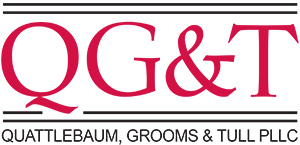UCC Amended To Accommodate Digital Commerce
Summer 2023 by David A. Gardner |
The Uniform Law Commission and American Law Institute amended the Uniform Commercial Code (UCC) in 2022 to accommodate digital asset transfers and recognize the increasing use of digital commerce. The key amendment is Article 12, which establishes rules for Controllable Electronic Records (CERs) concerning obtaining control and take-free provisions for qualified purchasers. Article 9 has been amended to include new rules for the perfection and priority of CERs. CERs are a specific type of digital asset under Article 12’s control rules. The law for electronic records before the Amendments, such as deposit accounts like checking accounts and electronic versions of chattel paper or documents of title, remains unchanged. The Amendments aim to create technologically neutral language in the UCC, ensuring its longevity and enabling consumers to use their digital asset portfolios in commercial transactions.
Control is a crucial concept in transforming a generic digital asset into a CER. It involves four elements: Benefit, Exclude, Transfer, and Identify. Control means the possessor can enjoy the benefits of the CER while preventing others from doing the same, all while retaining the exclusive power to transfer it. Identification can be demonstrated in numerous ways, such as providing proof of power through accessing an online account using a username and password or presenting the CER’s physical storage device like a memory card, to establish Article 12 control over the asset.
Perfection and priority rules have been amended to address the unique challenges of digital asset transfers. Digital assets are classified as general intangibles under UCC Article 9, which previously required filing for perfection. However, the Amendments favor perfection by control for CERs, recognizing their distinctive nature. Parties perfected by control now have priority over parties perfected by filing, even if the filing occurred first.
The UCC includes take-free provisions to facilitate commerce, ensuring buyers can acquire goods, and now CERs, without the risk of it being taken back. Article 12 extends this principle further, stating that any qualified purchaser of a CER takes it free and clear of any outstanding security interest. However, the purchaser must meet certain criteria, such as obtaining the CER for value, in good faith, and without actual notice of any claims to the CER.
Tethering refers to the rights conferred by possessing or owning another separate record. For example, a negotiable promissory note documenting the right to be paid by the maker of the note is merged into, or tethered, to the writing. The general rule in the Amendments is that an electronic record does not give rights to property associated with the record. However, there are exceptions for Electronic Controllable Accounts and Electronic Payment Intangibles. For example, electronic chattel paper. These rules provide clarity for lenders, assuring lenders that digital or online lending documents will not impede their rights under the UCC.
The amendments signal two significant takeaways for lenders. Firstly, the rise of digital assets in commercial transactions has led to the creation of specialized law and lenders can now use digital assets, such as social media accounts or electronic records, as collateral. Secondly, lenders should prioritize obtaining legal possession of any digital assets used as collateral. Parties perfected by control have super-priority, and securing login credentials or transferring ownership of the assets better protects lenders.
A hypothetical example is provided to understand how the Amendments operate in practice. It involves a collegiate athlete who wants to use her social media accounts as collateral for a loan. The lender requires proof of ownership and possession of the login credentials to her social media accounts, allowing the lender to control the social media accounts. This control enables the lender to benefit from, exclude others from, transfer, and identify the lender as the owner of the accounts. This satisfies the Article 12 control requirements. By establishing Article 12 control over the CER, the lender’s interest is perfected with super-priority over other claims to the social media accounts.
In conclusion, the UCC Amendments of 2022 address the challenges of digital assets in commerce. Lenders now have opportunities to use digital assets as collateral, and controlling these assets is vital for their protection. These Amendments create rules for the control, perfection, and take-free provisions for digital assets, ensuring the UCC remains relevant in the digital age of commerce.
A third-year law student at the University of Arkansas at Little Rock William H. Bowen School of Law, David is a law clerk at QGT and will join the firm as an associate upon graduation. He can be reached at dgardner@QGTLAW.com.
Note: The above article was published in the Summer 2023 issue of The Arkansas Community Banker. Click the link below to read the actual publication.
